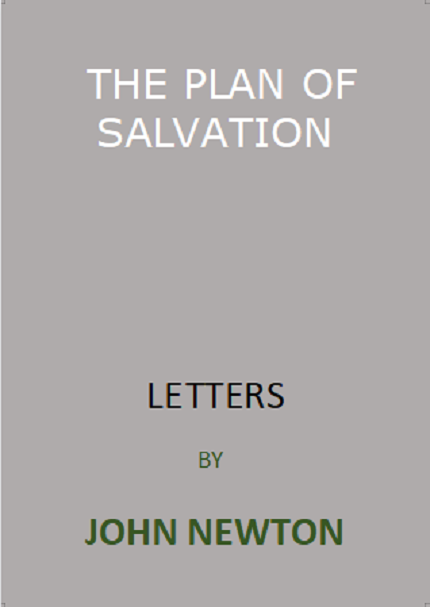Letters by John Newton.

The Plan of Salvation.
Letters by John Newton.
John Newton:
John Newton (1725-1807) was an English clergyman, hymnist, and prominent figure in the abolitionist movement. He is best known for writing the hymn “Amazing Grace.”
Before his conversion to Christianity, Newton had a turbulent past. He began his career as a sailor and eventually became a captain of slave ships, participating in the transatlantic slave trade. However, his experiences at sea, including being enslaved himself for a time in West Africa, had a profound impact on him.
In 1748, during a violent storm at sea, Newton underwent a spiritual conversion and dedicated his life to serving God. He renounced his involvement in the slave trade and became a prominent advocate for the abolition of slavery. Newton’s personal transformation and his firsthand knowledge of the slave trade made him a compelling voice against its horrors.
After his conversion, Newton pursued theological studies and was ordained as an Anglican priest in 1764. He served as a parish priest in Olney, Buckinghamshire, for 16 years, during which he collaborated with poet William Cowper to create the hymn collection known as “Olney Hymns” in 1779. The collection included the enduring hymn “Amazing Grace.”
In addition to his religious and hymn-writing contributions, Newton was an active supporter of the abolitionist cause. In 1788, he published a pamphlet titled “Thoughts Upon the Slave Trade,” which described the brutal conditions endured by enslaved people during the Middle Passage. Newton’s efforts, along with those of other abolitionists like William Wilberforce, eventually led to the passage of the Slave Trade Act of 1807 in Britain.
John Newton’s life and work continue to inspire and resonate with people around the world. His personal journey from a slave ship captain to a devoted Christian and abolitionist serves as a powerful example of redemption and the transformative power of grace.
Letters in this book:
– The plan of salvation.
– Questions on salvation.
– Our Divine Shepherd.
– The city was pure gold.
– The doctrines of election and final perseverance.
– The inefficacy of mere knowledge.
– Difference between acquired and experimental knowledge.
– Our imperfect knowledge of Christ’s love.
– The heavenly Builder.
– The heavenly Gardener.